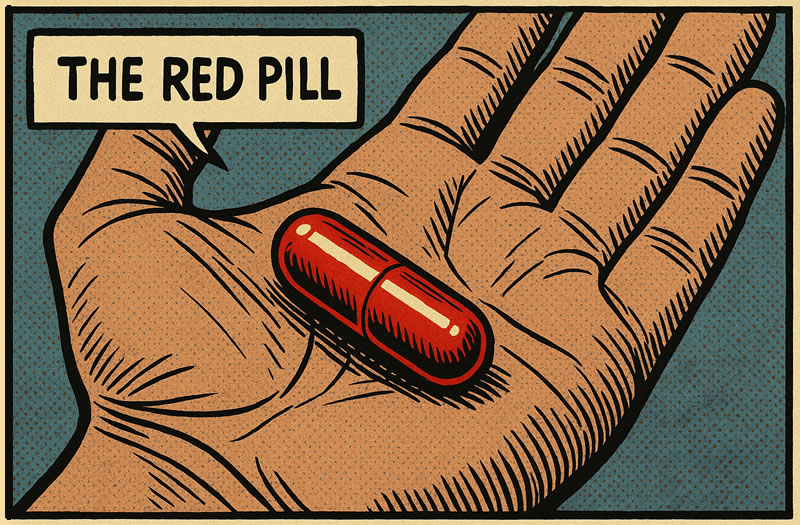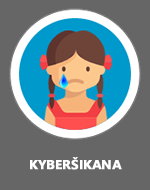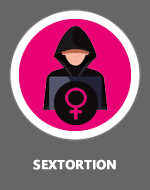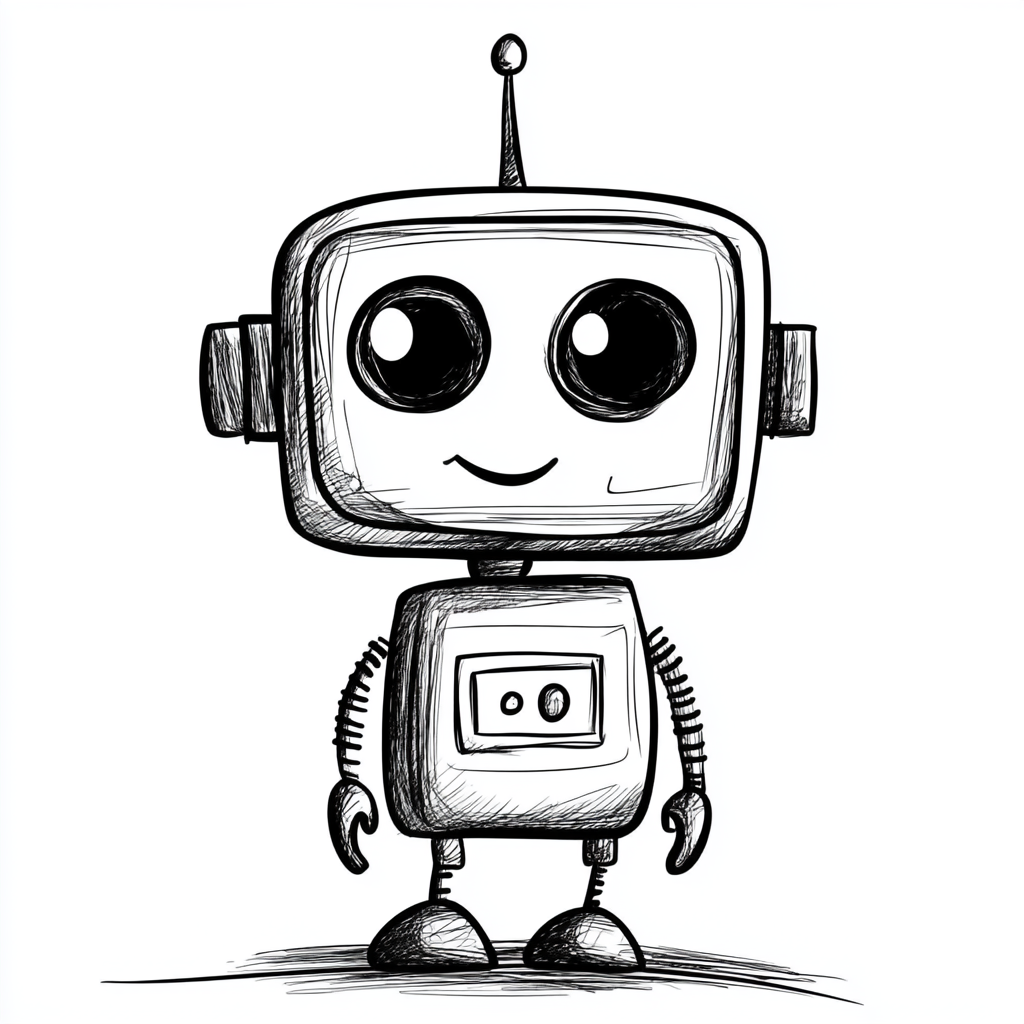 There are places on the internet that at first glance appear to be forums for sharing male experiences and support among men. In reality, however, they often spread hatred towards women, contempt for girls, and rejection of equality. These communities are collectively referred to as the manosphere and can be very dangerous for adolescent boys.
There are places on the internet that at first glance appear to be forums for sharing male experiences and support among men. In reality, however, they often spread hatred towards women, contempt for girls, and rejection of equality. These communities are collectively referred to as the manosphere and can be very dangerous for adolescent boys.
What is the manosphere?
Imagine your son watches a video titled “How to be a stronger man” or “How to earn respect.” It begins with advice on confidence, physical fitness, or success in school. But as it continues, it includes claims that women exploit men, that feminism has destroyed society, and that a real man should distance himself from women.
This is how the so-called manosphere operates – a network of online communities (websites, social media profiles, etc.) where discussions of masculinity are blended with deeply negative attitudes towards women and girls. Some groups in the manosphere believe that women are incapable of love, are manipulative, or that men should avoid them altogether. Other groups teach boys how to “pick up” women through manipulation.
Types of groups in the manosphere
The manosphere includes various groups and subcultures that differ in approach but share a common negative view of women:
Incels (from involuntary celibates) are individuals who remain without romantic or sexual relationships despite desiring them. They often blame women, society, or their biological traits for this failure. On online forums, they share their frustrations, often laced with misogyny and a sense of injustice. In extreme cases, some incels glorify violence against women or adopt extremist ideologies. However, most remain withdrawn, struggling with low self-esteem and loneliness.
MGTOW (Men Going Their Own Way) are men who choose to distance themselves from women and society. They claim women only exploit men and that the best solution is to avoid relationships entirely.
PUA (Pick-Up Artists) is a community focused on techniques for seducing women. Many of these tips are manipulative, sexist, and teach young men to view women as trophies or objects.
Anti-feminists are individuals or groups that oppose feminism, claiming it threatens traditional male roles and harms men.
Sigma males are described as lone wolves who reject social norms and hierarchies, not fitting into the “alpha” or “beta” categories. They are portrayed as independent and successful men who attract women without effort. While seemingly harmless, this concept is often used in the manosphere to reinforce superiority and isolation.
(This topic is discussed in the Vinohradská 12 podcast - episode Manosphere)
Why does the manosphere attract teenage boys?
Adolescence is a period full of uncertainty, questions, and the search for identity. Boys at this age often struggle with feelings of inadequacy, compare themselves to others, and want to be strong, respected, and successful. Questions like “How to be strong?”, “How to impress a girl?”, “Why do girls avoid me?” or “How to be a real man?” arise more frequently. But answers to these questions are often not found at home or school – they are found online, and that’s where the manosphere can catch them.
Manosphere content may initially seem attractive because it offers clear, simple, and “manly” advice. Videos are dynamic, with strong music, bold slogans, and charismatic speakers. They begin with relatable topics like self-confidence, discipline, sports, or entrepreneurship – things that naturally interest young men. Only later do they introduce ideas about women being manipulative, feminism ruining society, that “nice guys finish last,” and that real men should be dominant and cold.
The problem is that this content gives young men a sense of belonging and an explanation for their frustrations. Suddenly, their loneliness, failure, or disappointment is not their fault – it's because of women, society, or feminism. This “explanatory framework” is oversimplified and false, but highly appealing because it gives a sense of control and superiority.
Algorithms on platforms like YouTube, TikTok, or Instagram also function in a way that if a child watches one such video, more – and often more radical – videos are automatically recommended. Thus, a child can quickly end up in a “bubble” where manosphere views become the norm, and everything else is ridiculed or rejected.
As with other radicalization processes, a key factor here is the desire for acceptance, recognition, and understanding. If not found in real life, they may find it online – perhaps among radical “mentors” who promise to turn them into strong men who will never be rejected or mocked again.
What are the risks?
Long-term exposure to manosphere content can lead to radicalization – adopting beliefs that justify hatred or even violence against women. There have already been cases abroad where young men inspired by such content committed attacks – for example, in Canada or the USA.
Even without violence, the result is a shift in thinking. Boys stop seeing girls as equals, view them as enemies or manipulators. This can lead to bullying at school, worsened family relationships, or even feelings of loneliness.
How to tell if a child is influenced by the manosphere?
Understanding that a child is falling under the manosphere’s influence is not always easy. The impact of these groups is not immediate and often begins subtly. Initially, a child may just be interested in self-improvement videos or how to “become more manly.” But over time, their opinions, language, and behavior towards others may change.
Language is often the first warning sign. The child may start using terms like “alpha male,” “beta male,” “red pill” (a symbol of “awakening” to the belief that women are manipulative and men are oppressed), “normies” (regular people who don’t understand the manosphere’s “truth”), or refer to girls with derogatory terms like “females,” “gold diggers.” At the top of the hierarchy is “Chad,” and the lone wolves are “sigma males.”
Attitudes toward women and girls may change. The child may begin to openly show contempt for female classmates, mock female teachers, or claim women are less capable. They may question gender equality, reject girls as friends, or insist that “women have no place telling men how to live.”
There may be signs of greater isolation and secrecy. The child spends more time online, constantly watches a certain type of video, and stops sharing their interests. They may avoid family or respond irritably when asked what they are watching.
They may admire “tough” role models – influencers who speak harshly, act dominantly, and often demean women. The child may repeat, quote, or defend their statements in everyday conversation.
A warning sign is also a loss of empathy and a simplified worldview – for example, claiming that all women are the same, that the world is against men, or that “nice guys” have no chance in society. These views should be a prompt for conversation and deeper exploration of the reasons behind the change in attitude.

(One of the manosphere’s symbols is the red pill – a symbol of awakening, inspired by the movie The Matrix.)
What can parents or teachers do?
1. Talk openly with children. Show interest in their online activity.
2. Explain things. When you hear toxic views, discuss rather than condemn.
3. Offer alternative role models. Introduce positive and respectful male figures.
4. Be patient. Changing attitudes takes time and support.
In conclusion
The manosphere is not just an internet oddity. It is a real space where children's values are shaped. Education in respect, equality, and empathy is more important than ever. Parents and teachers play a key role in this.
For E-Bezpečí with the help of AI
Kamil Kopecký
Sources:
Wikipedia: ManosphereQustodio: What is the manosphere?
Kidslox: Guide to the manosphere
UN Women: How to counter the manosphere’s toxic influence
The Guardian: Study on manosphere influence
The Times: Adolescence and misogyny in French schools
































